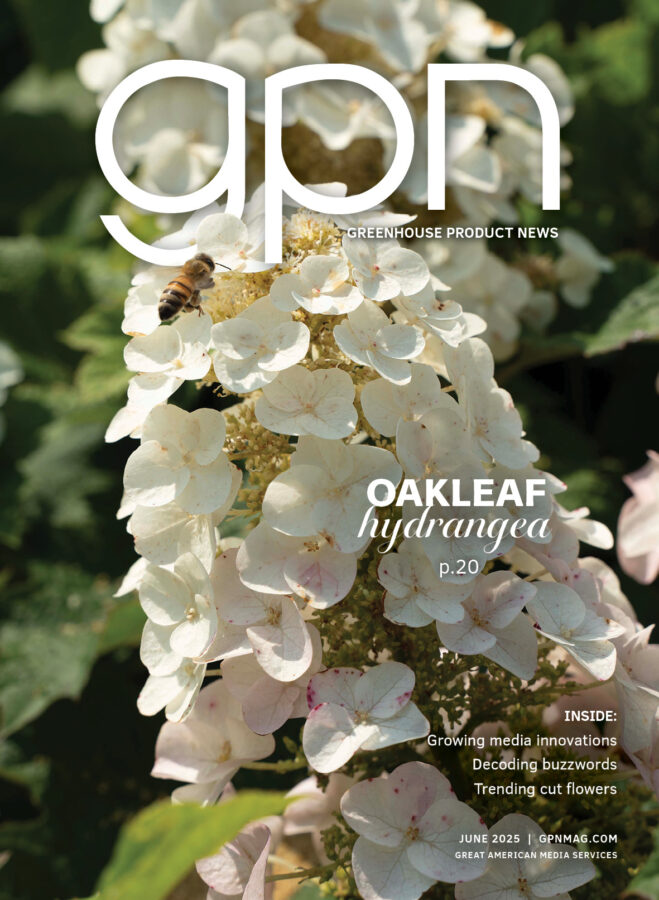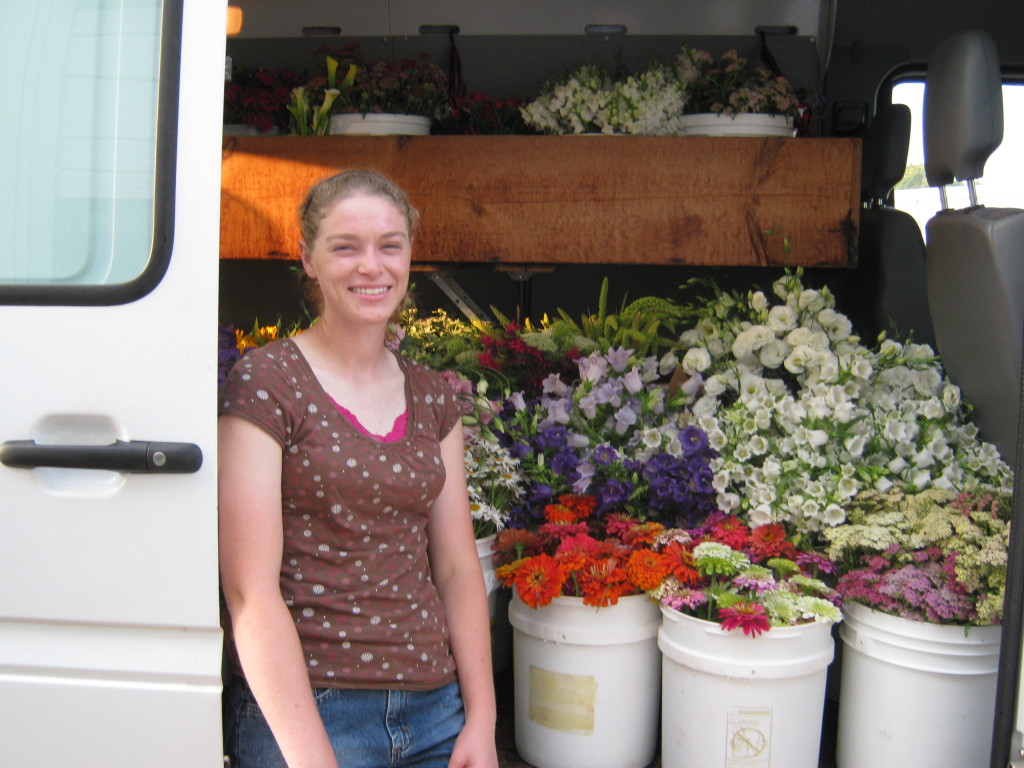
Plans to Succeed — Amy Hinkle 2011
While many college students often neglect to take full advantage of their breaks from school, Amy Hinkle spent this past summer in Stillwater, Okla., working for a cut flower grower. The Pennsylvania State University junior majoring in Horticulture Science was just as focused on her future career in horticulture as a child as she is today. An “entrepreneur” by the age of 11, Amy began taking charge at a young age. She currently plays multiple roles at Penn State, within and outside of the horticulture realm.
An Early Entrepreneur
Like many students in horticulture, Amy was first introduced to the industry at a very young age. Her family has had a produce farm in Belle Center, Ohio, since Amy was 9 years old. During a trip to a local farmers market at age 11, Amy noticed there was only one person selling flowers at the market. Her immediate reaction was to give the florist some competition.
“I asked my dad if I could have a small piece of land to grow flowers,” she shares. “He gave me space to grow 100 zinnias, and I sold those for one year. Then it kind of boomed into almost an acre of cut flowers that I was growing for the family market.”
After one year growing and selling flowers, Amy had made $1,000 for the family business. It was such a success that her father encouraged her to stick with it. Amy continued selling the flowers all the way through high school.
Leading by Example
Once she enrolled at Penn State, she was sure she wanted to major in a horticultural study but she hadn’t decided which discipline she would focus on specifically. Amy’s plan was to get as much of a well-rounded experience as possible to prepare for her future horticultural career. Her academic advisor Kathleen Kelley says, “Amy is always on top of things.” No matter what area she eventually goes into, she wants to have her bases covered.
Having known Amy since she began taking classes at Penn State, Kelley recalls Amy’s willingness to take on responsibilities that even upperclassmen decline to oversee. In her letter of recommendation, Kelley shares that Amy “has been involved in creating weekly floral arrangements for the College of Agricultural Sciences’ Ag. Administration Building and the Penn State Nittany Lion Inn.”
As vice president of PSU’s Horticulture Club, Amy assists with or coordinates various fundraising activities such as the annual Hort Show and Valentine’s Day flower sales. “Taking leadership in these extracurricular activities has never been an afterthought for Amy; rather she has fulfilled each obligation by exceeding expectations,” says Kelley. “Professors refer to Amy as one of those rare students who could serve as an example for others to follow.”
Uncanny Initiative
Having an early background in the cut flower business made it easy for Amy to decide where she wanted to apply for internships last year. She got involved with the Association of Specialty Cut Flower Growers, and earned a scholarship through them two years ago. When they invited her to their national conference, she knew it would be a great opportunity to meet with potential future employers. Resume in hand, Amy took the opportunity to network. There, she met Vicki Stamback of Bear Creek Farms. The following week she had a job offer in her e-mail inbox from Stamback.
Beginning in May 2010, Amy embarked on a 12-week internship at Bear Creek Farms, a 40-acre cut flower farm in Stillwater, Okla., that grows and sells more than 90 different varieties of cut flowers year round. “Since she had experience with farmers markets already, that is one reason why she came here,” adds Stamback. “She knew that I sold specifically to florists, and she hadn’t ever seen that end of the business before. She wanted to experience that.”
Bear Creek sells cut flowers to florists located in the Tulsa and Oklahoma City metro areas. Their production space includes six greenhouses, 10 acres of field flowers on rotation, 2 acres of established perennial shrubs, 10 acres of wild vegetative woods and one propagation house. Amy was aware that this would be a very hands-on experience that would take a lot of work and dedication, but she was committed to learning as much as possible about the cut flower business during her internship so much so that she created a very detailed plan before leaving Penn State. “She was pretty specific with what she wanted to learn while she was here,” says Stamback, “and we just made sure that happened.”
Amy’s plan included:
Employee Management and Farm Operations
Harvest flowers
Hydrate, preserve and cool all flowers
Communicate with Spanish-speaking workers
Insect and Scientific Investigation
Learn which insects affect specific crops
Prevent insect problems in the greenhouse and field
Use biological control methods
Recognize insect damage on plants and match the defect with the pest
Control insects in the field
Marketing, Sales and Communication
Learn how to market cut flowers to florists
Evaluate and audit individual crops to determine if they are profitable
Learn how to keep accounting records
Find out what florists want in fresh cut flowers
In addition to these plans, Amy had her own personal interests and goals she wanted to achieve during her internship. “I am very interested in lengthening the vase life of flowers to provide maximum quality to customers,” she shares in her essay. Therefore, she chose to conduct independent research at the farm concentrating on postharvest handling to improve vase life.
There was no concrete research that showed if the flowers grown at Bear Creek would last longer in the different floral preservatives on the market. For this reason, Amy “decided to research the effect of three holding solutions and two hydrators on the vase life of Oklahoma zinnias, Benary’s Giant zinnias, peppermint geranium, citrus geranium, variegated geranium and coleus cuts.”
This was an ongoing project from July until October. When Amy completed her internship, one of the Bear Creek employees took over and continued the study. The research has since been sent to John Dole at North Carolina State University who will determine some statistical results.
For Amy, it is very important to guarantee a certain vase life to customers when they purchase floral products. “There aren’t many people that will sit down and take the time to do a good vase life experiment on their stuff,” says Stamback. “I think it’s wonderful that a horticulture student her age is thinking in those terms. She’s organized, she knows what she wants experience in, and she knows what she needs to learn.”
Passion to Grow
Although she has her senior year to look forward to, career plans are already on Amy’s mind. Following graduation, she hopes to work and gain experience with a few horticulture companies to gain a larger perspective of the industry. And she won’t stop there. Once she feels she has gained enough knowledge of the industry, Amy plans to open up her very own specialty cut flower business that will “provide fresh, high-quality, local floral products to florists.”
But first thing’s first. Senior year is just around the corner, and Amy’s already got her plate full. This summer, Amy plans to sign up for another internship program to further her experience. Amy says she is “looking to either do something with horticulture marketing or work for a really large cut flower grower in the United States.”
Amy is still very active at Penn State, and not just within the horticulture program. She is also a member of the University Choir and the Alliance Christian Fellowship. It is important to Amy to have a well-rounded education and a well-rounded knowledge base, but she is not the kind of person to sit around and wait to be told or directed which way to go.
Amy Hinkle, from the age of 11, is a born leader. “She goes that extra mile,” says Kelley. “She puts more than the expected amount of energy into anything she does.”
“This is a young woman with a challenging mind and a desire to learn,” adds Cheryl Longtin, CEO of Nexus Corporation. “When I read Amy’s essay and the letters of recommendation, I saw a young woman who, in addition to having a wonderful grade point average while doing internships, worked as a greenhouse research assistant and owned her own seasonal cut flower business.”
And that is why Amy is the GPN/Nexus 2011 Intern of the Year. She has the drive, the energy and the passion to truly succeed in the horticulture industry. Says Stambeck, “I think everyone will hear more about Amy Hinkle. She’s going to do some incredible things for horticulture.”
SIDEBAR
More About the GPN/Nexus Scholarship
The education and experience gained by today’s horticulture students is vital to the future of our industry. That is why the Nexus Corporation and GPN have teamed up to give back to the industry that does so much for us.
“We wanted to do what we could to ensure young people who were interested in our industry would be able to have a real hands-on experience and get some assistance with their tuition,” says Cheryl Longtin, CEO of Nexus.
Amy Hinkle is the 12th recipient of the GPN/Nexus Scholarship that is 12 young horticulturalists that we have been able to assist. “An internship offers them an opportunity to start their career with a blank canvas,” says Longtin. “As they learn and see things first hand, they are designing their career choice, decision by decision, idea by idea.”
Along the way, we’ve discovered that we are also putting a spotlight on the advantages of having an intern work for a company. The 12 stories about the contributions these past students have made and also knowing the career path they have taken highlights the importance of having an internship program in our environments.
“We know that more companies are sponsoring interns and are seeing important benefits from the young people who spend months in their employ,” shares Longtin. “This scholarship is a way to highlight those people who open their doors to these college students and teach them the experiences that we have learned over the years.”
For information on the 2012 GPN/Nexus Scholarship, contact GPN’s editorial director Tim Hodson at thodson@sgcmail.com










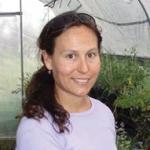

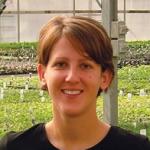
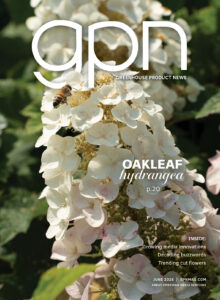
 Video Library
Video Library 

















